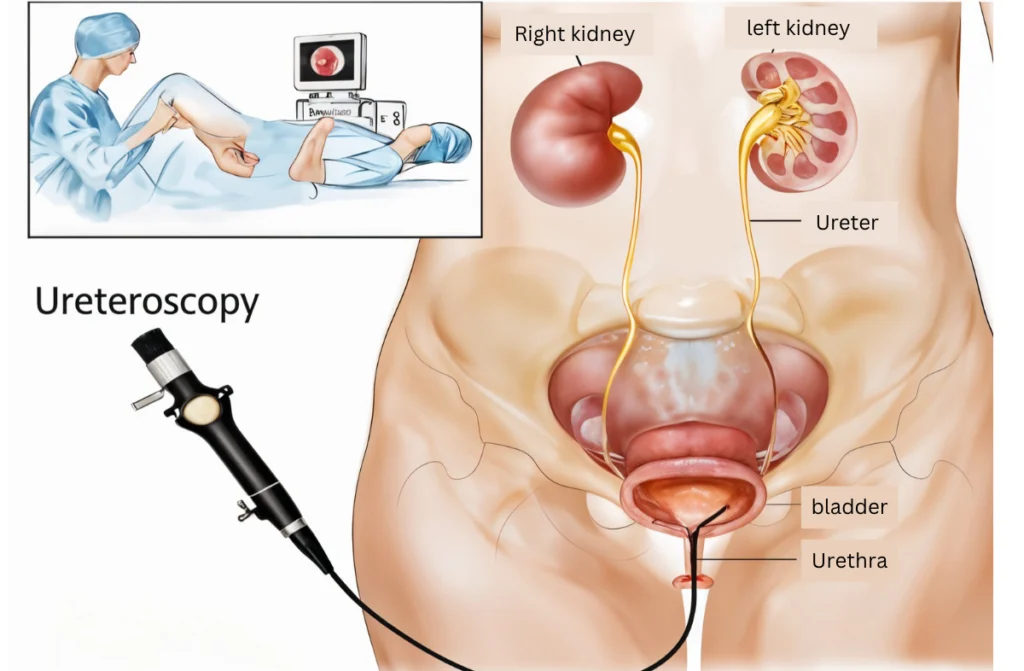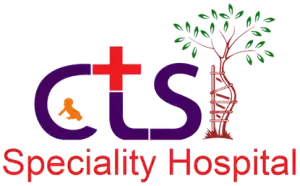Managing kidney stones has evolved, providing effective treatment options that ease discomfort and help prevent recurrence. At CTS Hospitals, we specialize in tailored kidney stone solutions, from non-invasive therapies to advanced surgical techniques. Our team is dedicated to supporting each patient with compassionate care and specialized expertise to achieve a full recovery. Choose CTS Hospitals for skilled, patient-centered treatment designed to restore comfort and well-being.

What Are Kidney Stones?
Kidney stones are solid mineral and salt deposits that develop within the kidneys. They can vary greatly in size, from fine grains to larger stones that can obstruct urine flow and cause severe pain. These stones form when certain substances, like calcium, oxalate, or uric acid, become concentrated in the urine and crystallize.
Types of Kidney Stones:
- Calcium Stones – The most prevalent type, affecting many kidney stone patients.
- Struvite Stones – Often linked to infection.
- Uric Acid Stones – Form when urine is overly acidic.
- Cystine Stones – A rare form, typically due to inherited factors.
Knowing the type of kidney stone is essential for choosing the most suitable treatment.
How Common Are Kidney Stones?
Kidney stones are increasingly common, affecting millions around the world. Statistics reveal that approximately 1 in 10 individuals will experience a kidney stone at some point in their life. Although men are generally more affected, kidney stones can impact anyone.
Key Risk Factors Include:
- Dehydration: Insufficient water intake concentrates urine, increasing stone risk.
- Diet Choices: A high intake of salt and animal protein can promote stone formation.
- Genetic Factors: A family history of kidney stones raises the likelihood of developing them.
With kidney stones on the rise, timely intervention is crucial to alleviate symptoms and prevent recurrences.
Recognizing Kidney Stone Symptoms
Early recognition of kidney stone symptoms can lead to faster treatment and greater relief. Common signs include:
- Intense pain in the side, back, or lower abdomen
- Burning pain during urination
- Blood in the urine, which may appear pink, red, or brown
- Nausea and vomiting due to severe pain
- Frequent urination in small amounts
These symptoms indicate a need for prompt medical care to determine the best treatment option for kidney stones.
Why Do Kidney Stones Form?
Kidney stones form when substances like calcium, oxalate, or uric acid become highly concentrated in the urine, leading to the formation of crystals. Over time, these crystals can accumulate into stones, causing pain and urinary blockages.
Contributing Factors:
- Dehydration: Low fluid intake concentrates urine.
- Dietary Choices: Excessive intake of sodium, sugar, and animal proteins raises the risk.
- Underlying Health Conditions: Issues like obesity, gout, and certain digestive disorders increase susceptibility.
Understanding these risk factors aids both in treating current stones and in preventing future ones.
Comprehensive Kidney Stone Treatment Options
Non-Surgical Kidney Stone Management
Medications: For smaller stones, medications can help dissolve or facilitate their passage. Physicians may recommend alpha-blockers, which relax the muscles in the ureter, allowing stones to pass more easily.
Hydration Therapy: Increasing fluid intake dilutes the urine, assisting the natural passage of smaller stones and helping to prevent new stone formation.
These non-surgical methods are often the initial approach, especially for smaller stones.
Shockwave Lithotripsy (SWL)
- Non-Invasive Treatment: Sound waves break kidney stones into small, passable fragments.
- Outpatient Procedure: SWL is generally done on an outpatient basis, allowing same-day discharge.
- Ideal for Medium-Sized Stones: Effective for stones 4–20 mm in size, breaking them into fragments that can pass naturally.
SWL offers a non-invasive option for medium-sized stones with minimal recovery time required.
Ureteroscopy
- Targeted Approach: A ureteroscope, a slender tube, is inserted through the urethra to locate and treat the stone.
- Laser Fragmentation: Stones are often broken down with a laser, making them easier to pass.
- No Incisions: This minimally invasive method is effective for stones in the ureter or lower kidney.
Ureteroscopy is a precise treatment for stones that cannot pass naturally, providing targeted relief.
Percutaneous Nephrolithotomy (PCNL)
- Direct Access via Small Incision: A small incision in the back allows direct access to larger or more complex stones.
- Efficient Removal: A nephroscope is inserted through the incision for rapid removal of the stone.
- Best for Large Stones: Recommended for stones too large to be managed by other methods.
PCNL is ideal for larger stones, providing an effective option for complete removal with minimal recovery time.
Laparoscopic Surgery
- Minimally Invasive Surgery: Small incisions allow direct removal of stones from the kidney or ureter.
- Quicker Recovery: Compared to open surgery, laparoscopic methods reduce recovery time and discomfort.
- Optimal for Complex Cases: Often used when other treatments aren’t effective, ensuring full removal.
Laparoscopic surgery is a reliable option for challenging or recurrent cases, providing thorough stone removal with less downtime.
Conclusion
At CTS Hospitals, our approach to kidney stone treatment emphasizes comprehensive care and preventive strategies for lasting relief. We provide a range of advanced options tailored to each patient’s unique needs, from non-invasive to minimally invasive procedures. Our skilled team is committed to ensuring comfort, precision, and successful outcomes. Rely on CTS Hospitals for compassionate, expert care and regain a life free from the pain of kidney stones.
